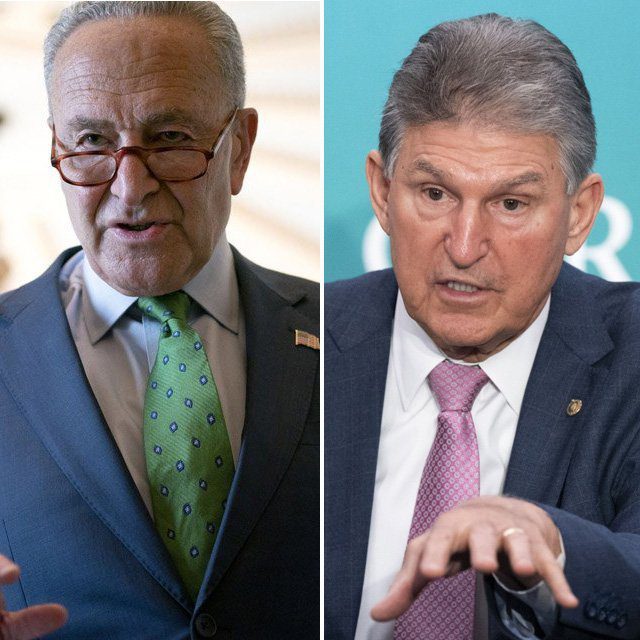Senate Passes Landmark Tax, Drugs and Climate Bill

What You Need to Know
The legislation aims to prevent large firms from exploiting tax breaks and to let Medicare negotiate drug prices.
It now goes to the House, where the Democratic majority is expected to pass it on Friday.
The Senate passed a landmark tax, climate and health-care bill, speeding a slimmed-down version of President Joe Biden’s domestic agenda on a path to becoming law after a year of Democratic infighting that the White House was unable to control.
The vote on the bill was 51 Democrats in favor to 50 Republicans against, with Vice President Kamala Harris casting the tie-breaking vote after an overnight marathon of votes on amendments. It now goes to the House, where the Democratic majority is expected to pass it on Friday.
“I am confident the Inflation Reduction Act will be one of the defining feats of the 21st century,” Majority Leader Chuck Schumer said before the vote.
Democrats called the bill the largest investment in fighting climate change ever made in the U.S., and it’s projected to help cut greenhouse gas emissions by about 40% from 2005 levels by the end of the decade. They applauded and hugged during the vote on final passage.
The legislation also aims to prevent large corporations from exploiting tax breaks to pay little if any tax, and it would allow Medicare to negotiate drug prices for the first time. It’s forecast to make the first substantial cut to budget deficits in more than 10 years.
Republicans, united in opposition, argued it wouldn’t stop the historic levels of inflation and would impose taxes that could tip the U.S. economy into recession.
Senate GOP leader Mitch McConnell argued that “hundreds of billions of dollars in tax hikes during a recession will kill jobs.”
The Senate vote was the culmination of a year and half of intra-party squabbling among Democrats about the scope of the bill, which Biden had once hoped would be so sweeping as to rival Franklin Delano Roosevelt’s New Deal.
In the end it came down to two holdout moderate Democrats, Senators Joe Manchin and Kyrsten Sinema, whose votes were essential in the 50-50 Senate and who balked at both larger tax increases and more spending. Biden negotiated with Manchin and Sinema in the early goings, but the deal that revived the bill was entirely hammered out on Capitol Hill.




